You don’t need a lot of money or free time to start living more sustainably.

Sustainability can feel out of reach when you’re working with limited time, limited cash, or both. Most advice sounds like it’s written for people with walk-in pantries and Saturdays free for DIY projects. But real life doesn’t work like that. The good news is you don’t need to overhaul your lifestyle or spend a fortune to make a real impact.
These products aren’t just low-waste—they’re low-effort and low-cost too. They’re practical, useful, and easy to stick with, even when your schedule’s a mess. No shame. No perfection. Just smart swaps that cut down on trash, reduce energy use, or save resources without making your life harder. You don’t have to be an eco-warrior to care. And you don’t need to be rich or retired to do something about it.
1. Reusable silicone food bags cut plastic without changing your habits.

According to the Center for Biological Diversity, plastic bags can take up to 1,000 years to degrade in landfills, breaking down into microplastics that continue to pollute the environment. Swapping them for reusable silicone bags cuts waste without asking you to change much of anything.
They’re heat-safe, dishwasher-safe, and built to last for years. You still toss your lunch in a bag or store leftovers like usual—just without the trash.
Even one or two in your rotation can replace hundreds of single-use bags each year. They seal tight, don’t rip, and handle messy food like a champ. Once you try them, the plastic ones feel flimsy and unnecessary. No fancy storage system needed, no zero-waste lifestyle required. Just a better bag that pays for itself over time.
2. Wool dryer balls shrink waste and your electric bill.

Dryer sheets smell good, but they’re packed with chemicals and destined for the trash after one use. Wool dryer balls are a reusable swap that actually works. Toss a couple in with your laundry, and they’ll help soften clothes, reduce static, and cut drying time. Per the David Suzuki Foundation, depending on your dryer’s make and model, wool dryer balls can decrease drying time by 30 to 50 percent, saving energy and money.
That last part matters more than you’d think. Less time in the dryer means a lower electric bill, which makes these a double win. They can last for hundreds of loads and require zero maintenance. Add a drop of essential oil if you miss the scent, and you’re set. Once they wear out, they’re compostable—unlike the plastic packaging dryer sheets come in.
3. A refillable spray bottle turns cheap concentrate into real savings.
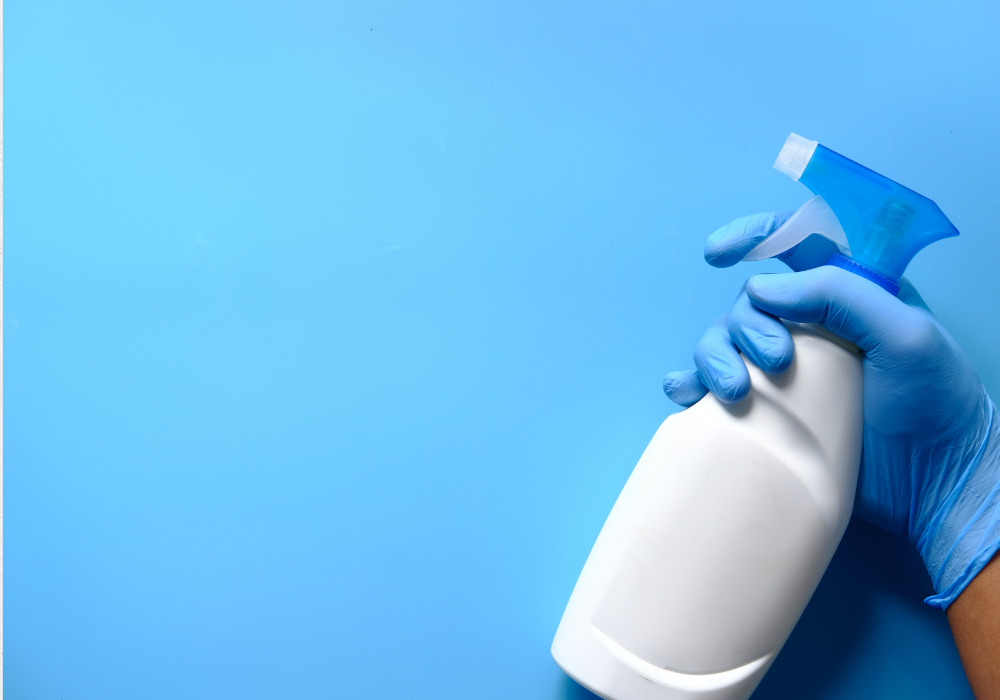
You probably already have a favorite cleaner, but buying a new plastic bottle every time is pure waste. A refillable spray bottle paired with concentrate or tablets gives you the same clean without the throwaway packaging or the cost. Jenny Bell at Pebble Magazine reports that brands like Blueland are making plastic-free cleaning easier and cheaper by offering these dissolvable tablets.
This swap doesn’t require a whole new cleaning routine. You still spray, wipe, and go—just with a bottle that doesn’t end up in the trash. Refills take seconds to mix with water, and some brands offer plastic-free shipping or compostable packaging. It’s a small switch that reduces waste and clutter without making life harder.
4. Swedish dishcloths wipe up spills and wipe out paper towel waste.
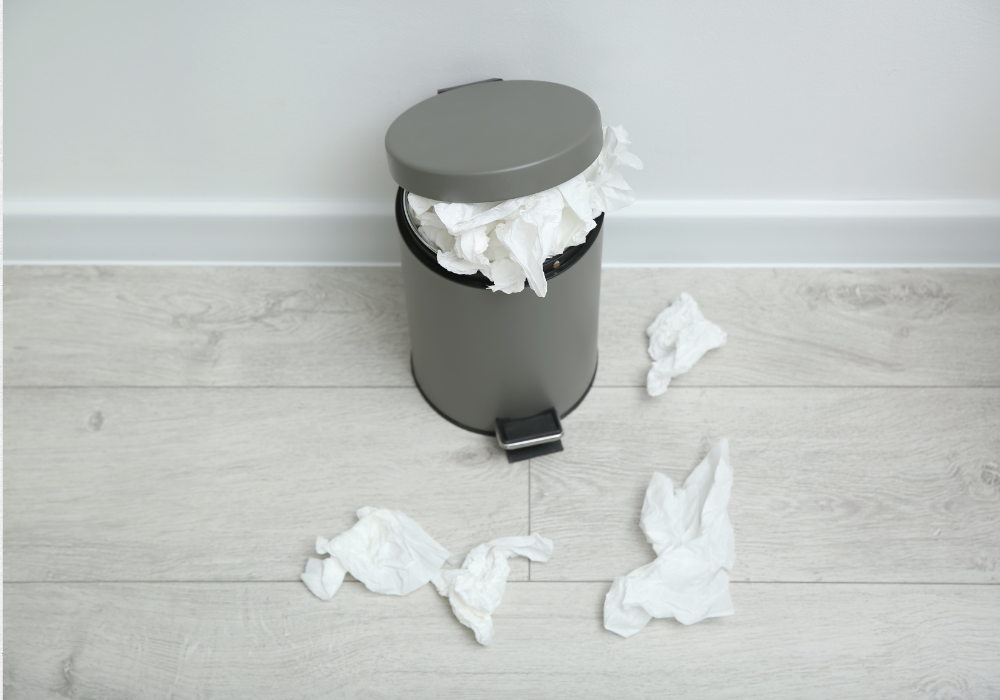
Swedish dishcloths don’t look like much at first, but once you use one, it’s hard to go back. They’re ultra-absorbent like a sponge, thin like a rag, and strong enough to scrub. You can rinse them, toss them in the washer, and reuse them for months.
Each one replaces dozens of paper towel rolls—and unlike those rolls, they don’t fall apart mid-wipe or clog your trash can. They dry quickly so they don’t get smelly, and when they’re finally done, most are compostable. They’re one of the easiest upgrades you can make. You won’t even notice the difference—until you realize your last roll of paper towels has lasted weeks.
5. Safety razors give you a better shave and way less waste.
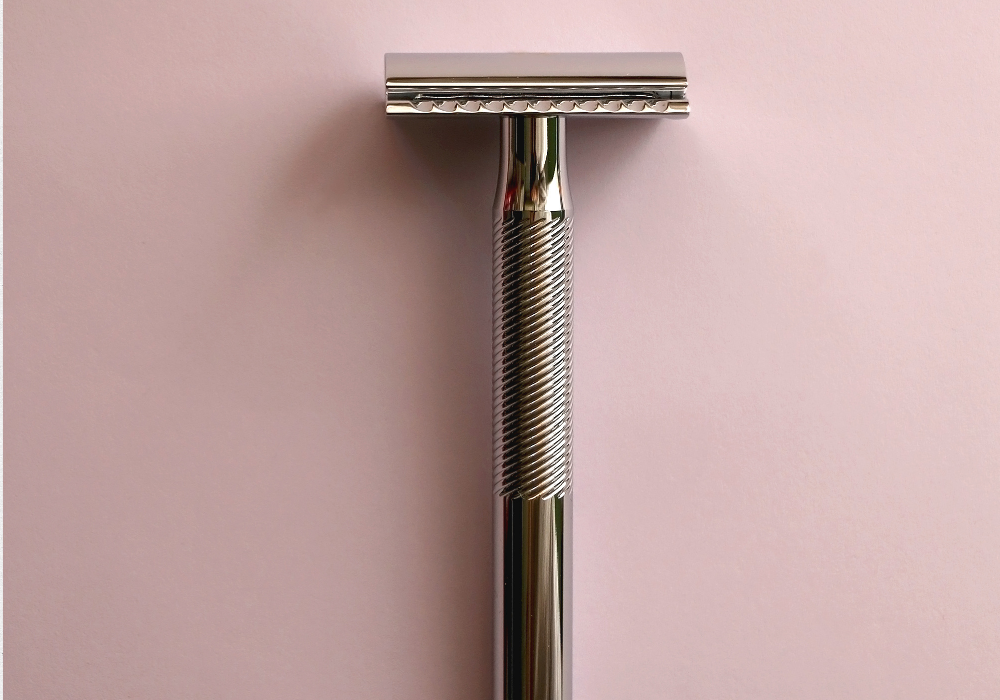
Disposable razors are convenient until you realize how fast they dull, how much they cost, and how much waste they create. A safety razor swaps that out for a solid metal handle and simple, recyclable blades that last longer and cost pennies to replace.
It looks a little intimidating at first, but it’s easy to use after a shave or two. The result? A smoother shave, less irritation, and zero plastic packaging. These razors last for years, if not forever, and the blades are easy to recycle with a blade bank. It’s an old-school tool that still works better than most of the modern stuff—and it saves money too.
6. Compost bins don’t have to be gross, huge, or hard to use.

Composting sounds like a whole project—until you realize all you need is a small bin and a spot to drop scraps. A basic countertop compost bin with a charcoal filter keeps smells contained and fits easily under the sink or on the counter. You don’t need a backyard or a full garden to make it work.
Even tossing a few banana peels and coffee grounds a week makes a difference. When food waste goes to landfills, it creates methane—a potent greenhouse gas. Composting turns that into soil instead. Some cities offer curbside compost pickup, or you can drop scraps at a local collection site. It’s easy, low-commitment, and you still get to eat whatever you want.
7. Bidets save water, reduce waste, and honestly feel better.
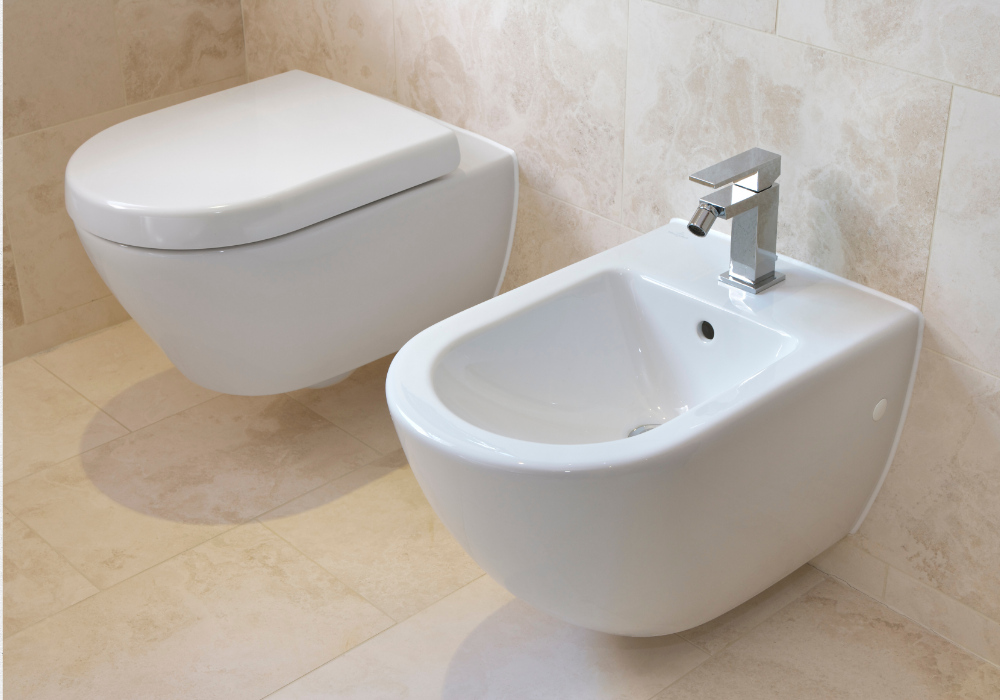
Toilet paper might feel essential, but it’s wasteful, expensive, and pretty rough on the environment. A bidet attachment changes that. It connects right to your toilet, takes about 15 minutes to install, and instantly upgrades your bathroom game. You use less TP—sometimes none at all—and your hygiene actually improves.
Most people are surprised by how much cleaner they feel. There’s no complicated setup, no need to go full luxury spa mode. Just a simple water spray that drastically cuts paper waste and saves trees. It also reduces the energy and water used in TP manufacturing, which most people don’t think about. Over time, it even saves you money. One small purchase, one tiny plumbing tweak, and you’re suddenly doing better for the planet every single day. It’s practical, cheap, and surprisingly hard to go back from once you’ve tried it.
8. Bamboo toothbrushes ditch plastic without feeling like a downgrade.
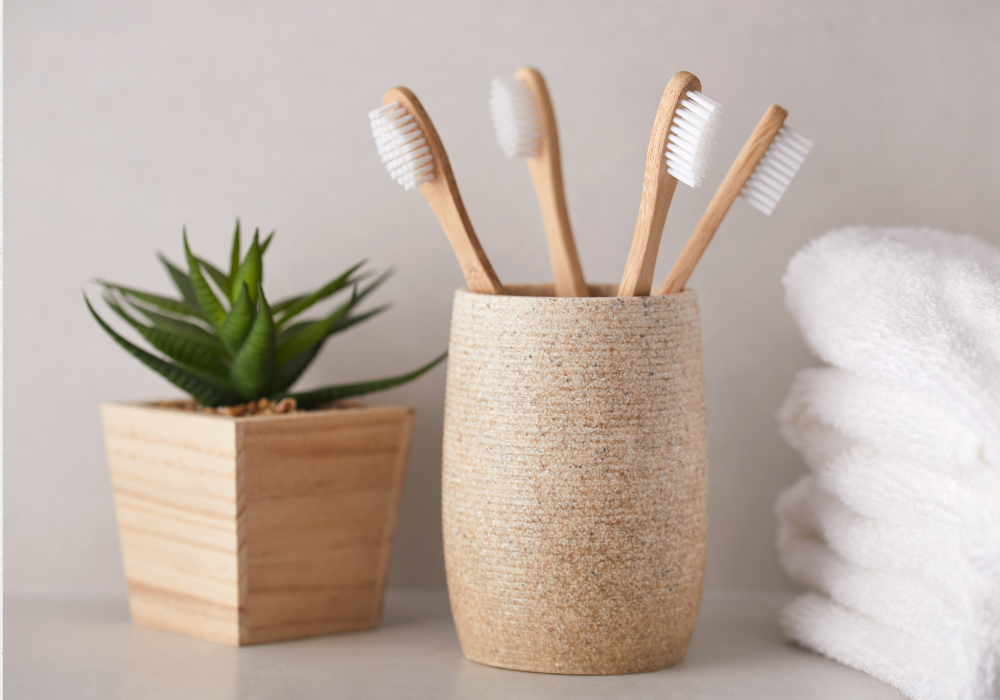
Plastic toothbrushes might be tiny, but they add up—billions are tossed every year, and most end up in landfills or oceans. Bamboo toothbrushes work the same way, but with a handle made from fast-growing, biodegradable bamboo. You use it just like any other toothbrush, and when you’re done, you can compost the handle.
There’s no weird adjustment period. The bristles feel familiar, and the brushing experience is exactly what you’re used to. Some brands even offer plant-based or recyclable bristles, cutting plastic down even further.
They’re just as affordable as conventional brushes, and they don’t come wrapped in layers of unnecessary packaging. It’s one of the simplest swaps you can make, especially if you go through a few brushes a year. It takes no extra time or energy—just a better material doing the same job with less waste.
9. Bar soap skips the bottle and works just as well.

Liquid body wash might be convenient, but it’s also wasteful. Those plastic bottles pile up fast, especially in households with multiple people. Bar soap, on the other hand, lasts longer, comes in minimal (often recyclable) packaging, and skips all the unnecessary plastic. Plus, it usually costs less than a fancy bottle of shower gel. Look for bars made with nourishing oils or shea butter if you’re worried about dryness. There’s a huge variety now—unscented, locally made, exfoliating, you name it. And if you grab a soap dish that drains well, your bar will last even longer without turning into mush.
It’s a swap that takes zero effort to get used to. You still shower like usual—just with a smaller footprint and fewer plastic bottles on your bathroom shelf. It’s old-school for a reason: it works.
10. A simple water filter turns your tap into a sustainable win.

Bottled water feels convenient, but it’s expensive, heavy to carry, and terrible for the environment. A water filter—whether it’s a pitcher, faucet attachment, or under-sink model—makes tap water taste better and reduces your need for single-use bottles. It’s a one-time purchase with a big impact.
Most filters remove common contaminants and improve taste, even in areas with questionable tap quality. Replacing the filter every few months is easy, and the cost is far less than buying water every week. You’ll create way less plastic waste and avoid the emissions from transporting bottled water to stores. Plus, you don’t have to haul heavy cases around or find space to store them. With one switch, you make your daily routine easier, cheaper, and more sustainable—all without changing how much water you drink.
11. Mesh produce bags make plastic look pointless.
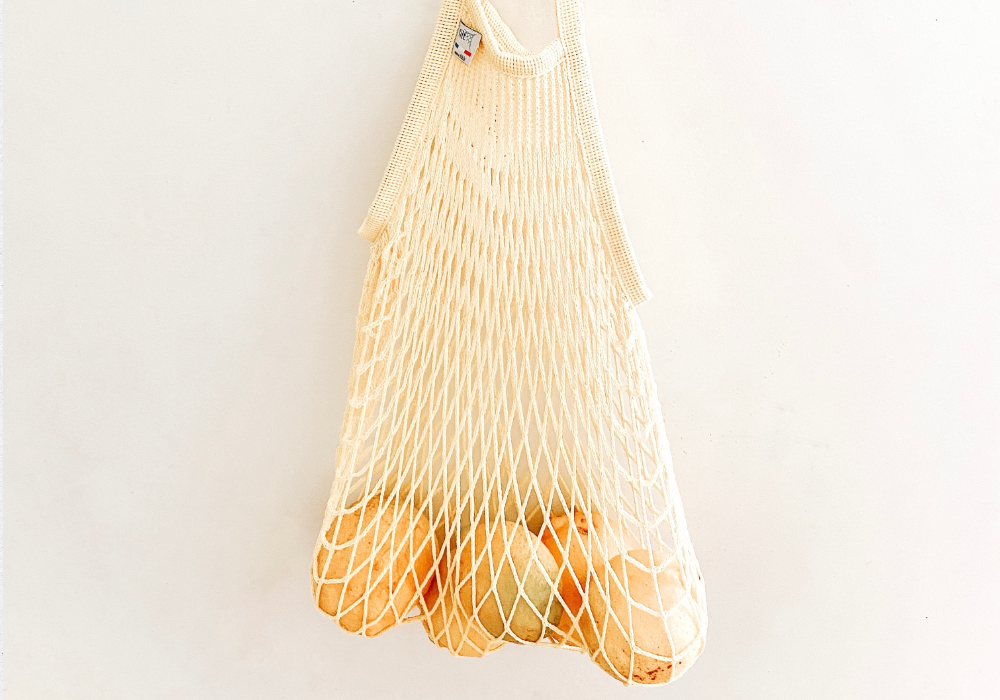
Every trip to the store adds more flimsy plastic bags to your home, and most end up in the trash. Mesh produce bags are a cheap, reusable fix. They’re strong enough for apples, potatoes, and everything in between, and you can toss them in the wash when needed. One small set can last for years.
They’re lightweight, easy to see through at checkout, and simple to stash in your tote or glove box. Some even come with tare weights printed on them to make bulk shopping easier. You don’t need to use them for everything—even replacing a few plastic bags each week makes a difference. They save space, reduce waste, and won’t split open on your way to the fridge. It’s a low-cost upgrade you’ll barely notice until you realize how many plastic bags you’re not using anymore.
12. Cloth napkins feel fancy but actually save you money.

Paper napkins seem harmless, but they’re just another thing you have to keep buying—and throwing away. Cloth napkins are a surprisingly easy alternative. You don’t need to iron them or keep a matching set. Just grab a few and keep them in a drawer. Use one, toss it in with your next load of laundry, repeat.
They hold up better, feel nicer to use, and last for years. Even the cheapest ones outlast dozens of paper packs. And let’s be honest: dinner feels a little more pulled together with real fabric on the table, even if you’re eating leftovers on the couch. You don’t need to be fancy. You just need to stop buying napkins that fall apart and end up in the trash five minutes later. This is one of those changes that quietly becomes a habit—and a helpful one.
13. Reusable coffee filters save cash and cut daily waste.

If you make coffee at home, those paper filters add up fast—not just in cost, but in trash. A reusable coffee filter gives you the same strong brew without the waste. Made from stainless steel or fine mesh, they’re built to last and easy to clean. Just dump the grounds, rinse, and reuse.
They fit most drip machines or pour-over setups and don’t change the flavor of your coffee. Some even come with their own frame, so you don’t need extra gear. It’s a small change that becomes part of your daily rhythm almost instantly.
Plus, coffee grounds are compostable—so now you’ve got two ways to cut waste with one cup. Over time, this little filter saves money and shrinks your footprint without adding effort. You still get your caffeine, just with a little less garbage in the process.
14. A simple clothesline or drying rack skips emissions and saves energy.
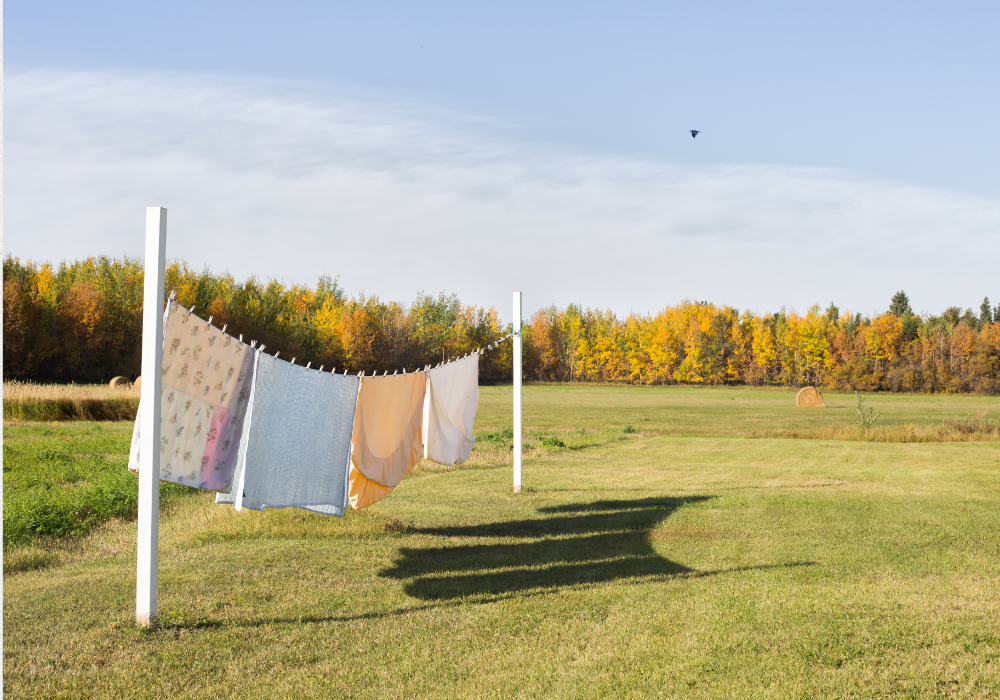
Dryers are convenient, but they’re one of the biggest energy hogs in your home. Hanging your clothes to dry—even just part of the time—can make a big difference. A basic folding drying rack or backyard clothesline costs almost nothing and lasts for years.
You don’t have to dry everything this way. Even letting heavy items like jeans or towels air dry once a week helps reduce wear on your clothes and cuts down your electric bill. It also lowers your carbon footprint without asking you to change your laundry schedule much at all. Indoors or out, this low-tech fix is easy to use, takes minutes to set up, and pays off over time. No smart gadget required—just a sunny spot or a little patience.
